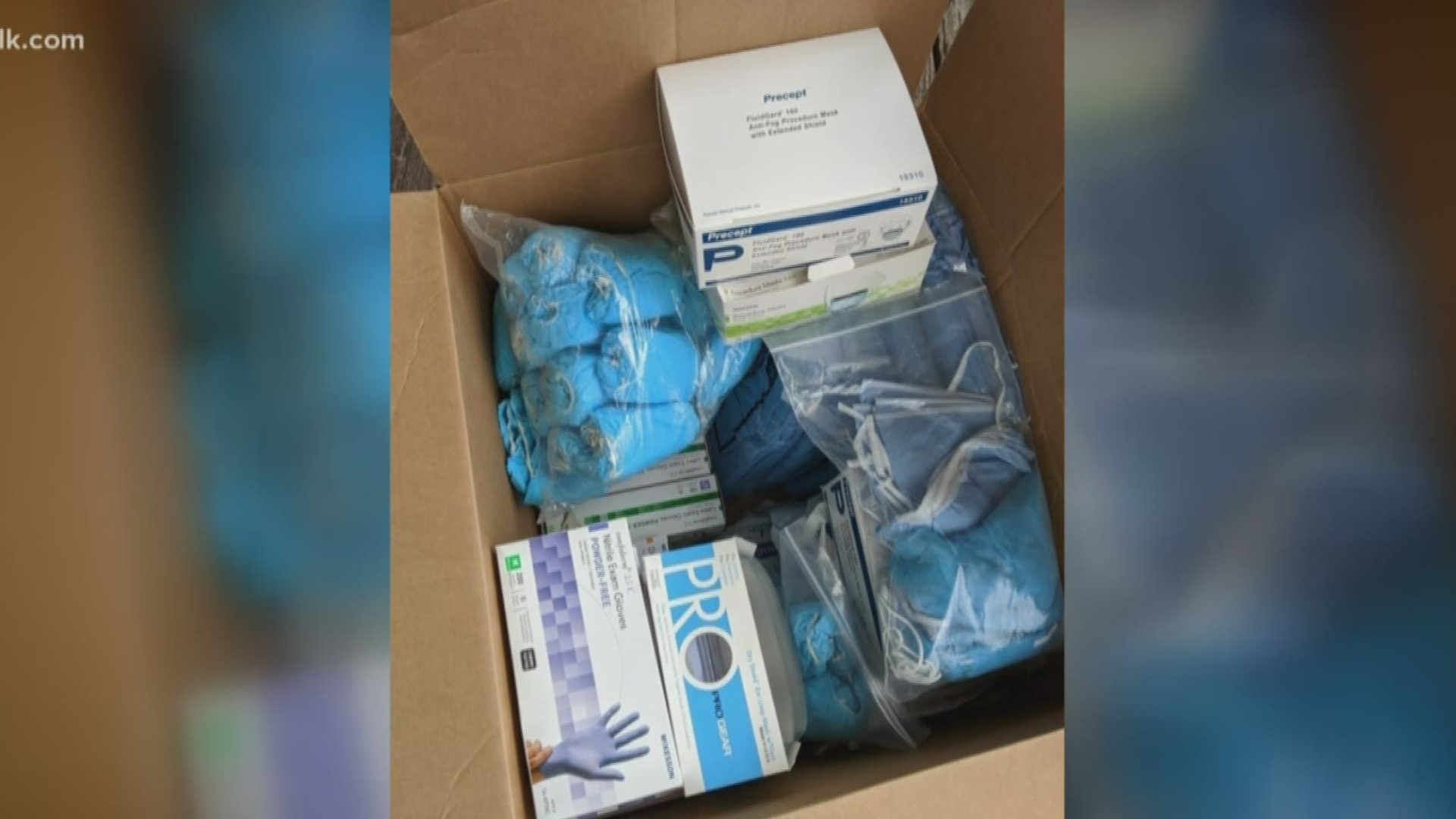ST. LOUIS — For many St. Louis health care workers, home life right now is a lot like Genevieve Caffrey's.
"We quarantined my husband three weeks ago. We very early on realized this is going to be pretty bad," she said.
Not because he's sick, but because he is an emergency room doctor treating COVID-19 patients.
Caffrey's husband is sealed-off in one room from the rest of the house for the safety of the rest of the family.
Caffrey said she worries about her husband the most when he's back at work in the ER as supplies of personal protective equipment, or PPE, run low.
"When he started coming home and was visibly nervous about having the right amount of equipment... for the trajectory of this crisis I started to get nervous too," she said.
So she got busy building a Facebook page with a friend to collect PPE supplies from the stockrooms of businesses and school districts to donate to health care workers. It's called "PPE For STL."
"People all over the healthcare system, who are very, very concerned about not having the right PPE," fill out request forms and the group tries to fulfill their request with donations, she said.
"I worry about the nurses on the front line every day. That's all we think about is them," said Denise Murphy, the vice president for Patient Care Systems and senior nurse executive for BJC HealthCare.
Murphy said she has heard the concerns frontline health care workers have about PPE. She said BJC has redirected its supply to make sure those working closest to COVID-19 patients have what they need to stay safe at least for now.
"We're balancing the science and the CDC guidelines with our availability of supplies, with the anxiety of people," Murphy said. "We don't want people to be afraid," she said of healthcare workers. She said while they may notice supplies are as plentiful or have been moved to more critical locations, she is confident her hospitals have what they need to care for COVID-19 patients for the near future. However, the supply must be used "judiciously," she said.
But from what Caffrey has heard from people requesting supplies, some are already running out.
"Smaller health care facilities, the community organizations, and nursing homes... they're out. They are desperate," she said.
There was another health care shortage even before COVID-19 -- too few nurses.
Caffrey said the first thing anyone wanting to help the PPE problem should do is call their elected representatives and connect via the group's Facebook page.
BJC HealthCare said it's working on plans to get hundreds more ready to help, including the enlistment of Washington University medical school professors to help care for patients.
More coronavirus coverage:

